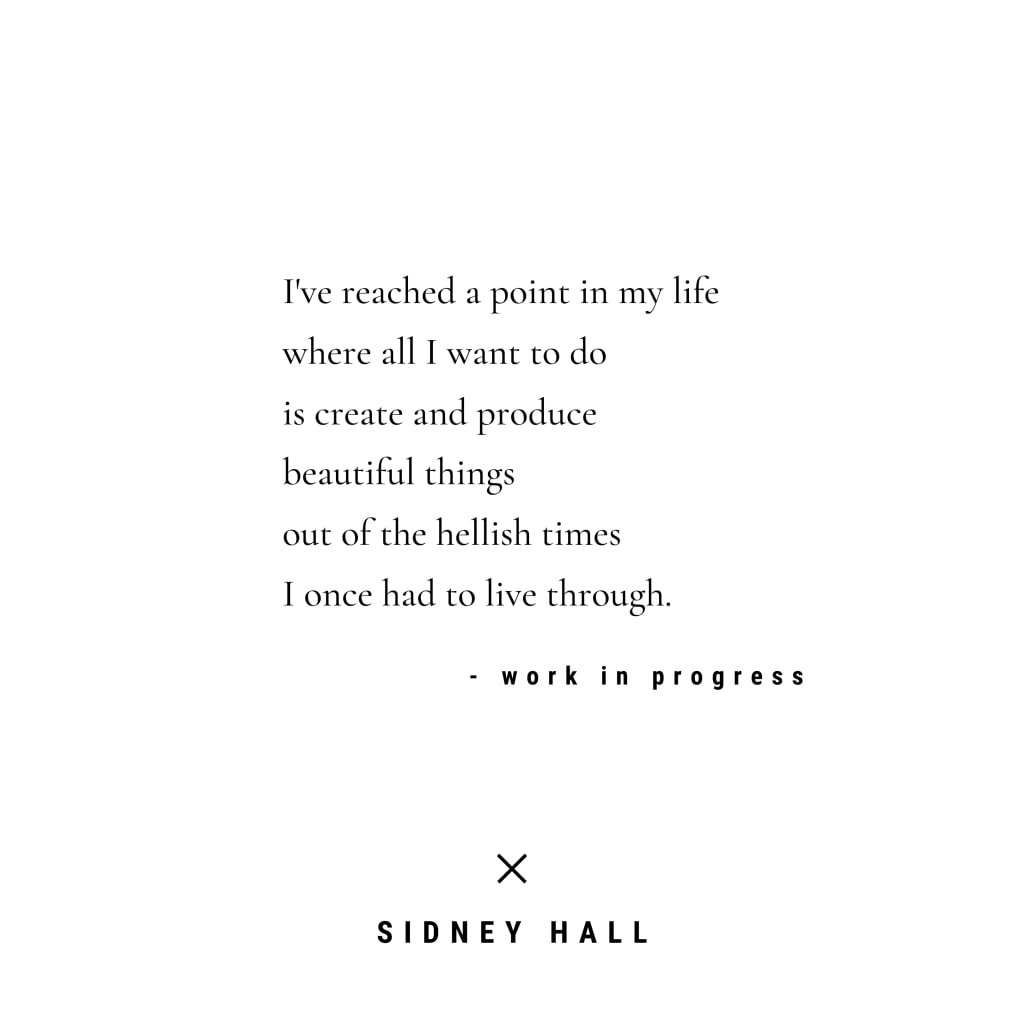The Healing Art of Poetry
(the most effective form of therapy I have ever known)

As a girl, I hated poetry — at least, the kind my teachers made me read. It felt complex and inaccessible, as each verse was composed of words I could not easily understand. Indeed, the academic poetry (as I like to call it) of my youth left me feeling diminished and, at times, even made my mind go numb.
But now, as I near the age of 30, I have become an avid student and advocate of poetry. But this poetry is different from the poetry of my youth; it’s my own personal form of therapy.
A Brief History of Poetic Therapy
Poetic therapy has been documented as far back as ancient Egypt in the fourth millennium B.C.E. At the time, it was believed that one could, quite literally, eat words written on papyrus — which was then dissolved in a solution, making it easier to ingest — to cure whatever ailed them.
Historically, the first poetry therapist on record was a Roman physician named Soranus, who lived in the first century A.D. Soranus was known for prescribing tragedy to his manic patients and comedy for those who were depressed. (Can you imagine your doctor doing this?)
As unusual as it sounds, this practice aligned with classic Greek and Roman beliefs at the time. Just look at Apollo: the Greek and Roman god of poetry and medicine (among other things). At this point in history, medicine and the arts worked in tandem to treat patients in a holistic manner. And yet, for many centuries, the link between the two fields remained rather obscure.
It wasn’t until the rise of group therapy in the 1960s that the field of poetry therapy started to truly flourish and take shape — as well-known figures such as Freud, Adler, Jung, Arieti and Reik began to study and incorporate the expressive arts into their psychotherapy work.
And as many mental health professionals have discovered since, it is compelling to witness patients discover and unfold their inner world through the outward customs and cadences of poetic devices. It leads one to believe that such devices act as not locks, but rather, keys for releasing us from the prison of that which holds us back in life; the things that keep us from moving on and moving forward.
Defining Poetry as a Form of Therapy
At its core, poetry is simply the act of speaking our individual truth, and each of us has a truth as unique as our own fingerprints. But without knowing that truth — without speaking it aloud — we cannot know who we are and that we are already whole (despite the days when we feel like a collection of broken pieces).
In the most profound way, speaking our truth shows us that our life matters and that our viewpoint has never existed before. It reveals that our suffering, our joy, our fears and our hopes are important and meaningful. And speaking that truth has the capacity to heal the heartaches and traumas from which we so often suffer.
More often than not, the first poem is the hardest to write, as so many of us are caught by a lifetime of being smaller than we are — trapped by our ideas of what art is, what an artist is — and perhaps even immobilized by the judgements of teachers whose names we don’t remember. It leads one to ask:
At what point did we forget that anything true is beautiful? How young were we then?
But once one gets past that first poem, the act of writing poetry becomes contagious…
Coming Home by Sidney Hall
For me,
the experience of reading
and writing poetry
feels like discovering a place,
a house,
that I thought I'd never been;
yet as I walk through,
the staircase greets me warmly,
while the hallway groans
in response to my every step.
And at its end,
I find a door
that shows me into
a room I once knew as a kid.
And suddenly,
I am overwhelmed
by a strange sense of familiarity.
I see that everything is still there:
the comforts of childhood,
the heartaches of old flames,
the remnants of forgotten memories,
all left behind
the day I chose to leave,
to walk away.
And yet, like this house,
here they dwell:
completely unchanged,
frozen in time,
patiently waiting
for me to come home
and pay them a visit, alone.
But I know
it is only through poetry
that can I finally face
each and every one
of these rooms
on my own
and speak my truth,
which is so heavy
that I can feel it
crushing my bones.
And speaking that truth
is something (I hope)
might, once again,
make me whole.
- coming home
....
Thanks for reading! To see more of my work, check out @hallofsidney on Instagram.
About the Creator
Sidney Hall
Photographing, in words, the world that I see.






Comments
There are no comments for this story
Be the first to respond and start the conversation.